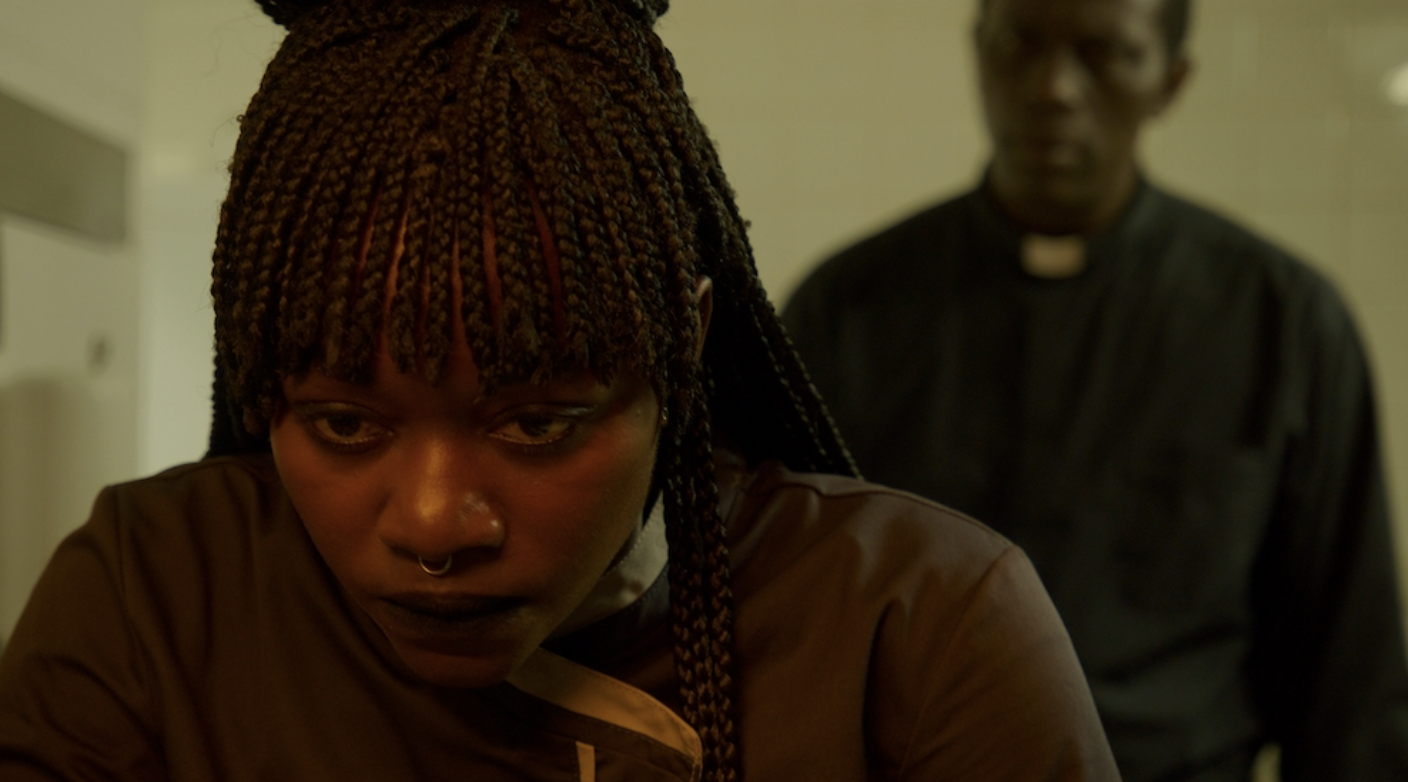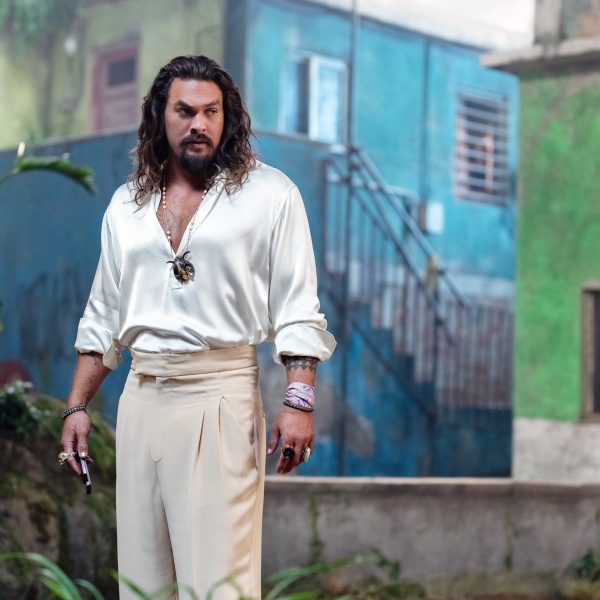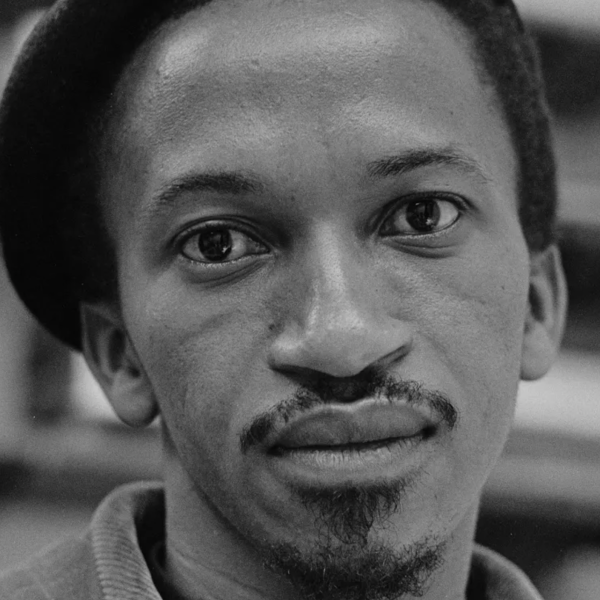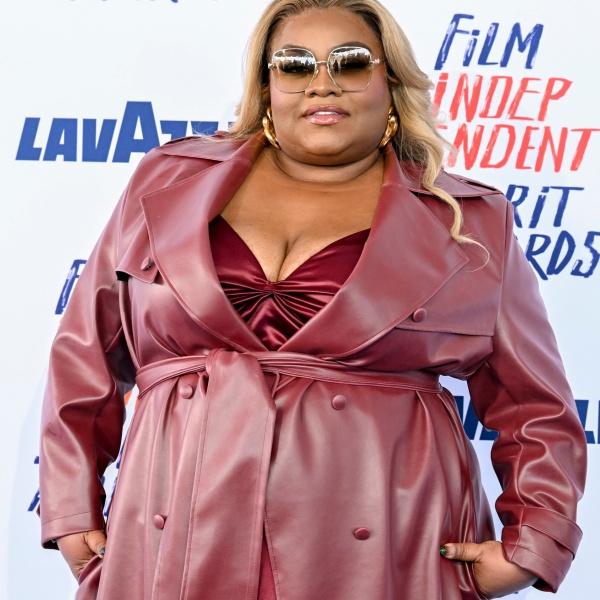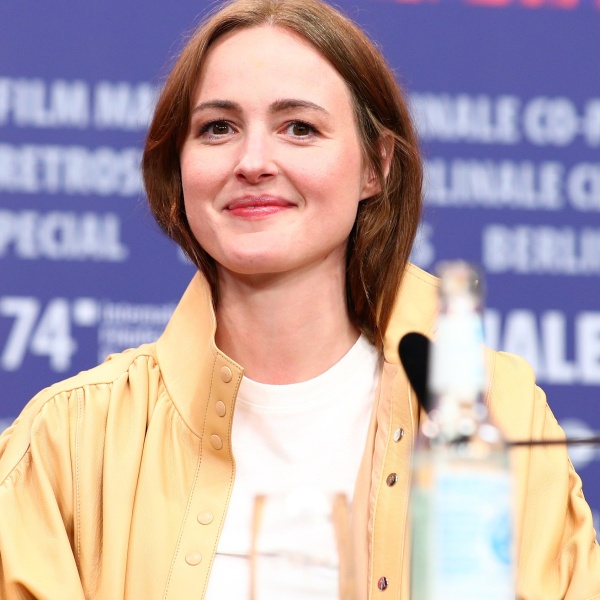
There are no atheists in foxholes and — generally speaking — there are no grifters in gimp bondage. Critics of contemporary Christianity are quick to point out that sects of the faith are filled with so-called “priests” who lie, scam, embezzle, and abuse their followers in the name of enriching themselves. But tie one of them up and threaten to kill him and you’ll see his true nature revealed. Anyone who keeps preaching their Biblical virtues when their physical safety is on the line is probably sincere about it.
That uncomfortable fact becomes apparent to Marie (Babetida Sadjo) when she kidnaps the man who haunts her dreams in “Our Father, the Devil.” Despite a brutal childhood in war-torn Africa, Marie has built a respectable life for herself as the head chef at an upscale French nursing home. But when the seemingly perfect Father Patrick (Souléymane Sy Savané) arrives and starts preaching to her affluent residents, she instantly recognizes him as the warlord who killed her parents, burned her village, and repeatedly raped her after forcing her to join his militia. He might have changed his name and hidden his scars, but she’d recognize his eyes and unusual eating habits anywhere.
Her attempts to civilly coexist with him understandably fall short, and she takes her first opportunity to attack him in the kitchen and drag his unconscious body to her apartment. Once she ties him up and starts torturing him, she expects his old self to rear its ugly head. But no matter how much she starves, waterboards, and humiliates him, he continues to offer nothing but remorse and gentleness. He explains how a spiritual awakening prompted him to abandon his brutality and begin using Scripture to liberate others from the pain he felt. In other words, the bastard who robbed Marie of childhood innocence now has the nerve to deprive her of an angry catharsis.
Ellie Foumbi’s directorial debut exists somewhere in between “Misery” and “Master Gardener,” beginning as a revenge thriller before morphing into an exploration of whether anyone is truly forgivable. Any adrenaline that Marie might have received from the Hollywood-like circumstances that allowed her to confront her assailant are immediately washed away by the realization that he has no interest in the fight she craves. Even worse, his willingness to atone for the crimes they committed together shines light on her failure to do so.
The moral Gordian knot binding Marie and Father Patrick is the tension between the languages of traditional Christianity and therapy-soaked secular humanism. The former uses the assumption that humanity is inherently depraved as grounds to offer unconditional forgiveness to all who seek it. The latter sees trauma as the root of all evil, encouraging its practitioners to dig into their pasts and find the external roots of their character flaws to free themselves from guilt. Both worldviews have proven themselves capable of doing enormous good in proper dosages — and enabling our worst impulses when overindulged.
Reading the film in a therapeutic context, it’s tempting to cast Marie as the unambiguous hero. She witnessed unspeakable atrocities at an early age, then spent her formative years being indoctrinated into a vile ideology and committing crimes she couldn’t possibly understand. The nihilism and thirst for revenge that plague her adult life are obviously the result of circumstances beyond her control.
But Foumbi resists such convenient simplicity by giving us the Platonic ideal of a redeemed soul in Father Patrick. Despite a damning cosmic scorecard, he’s undergone what appears to be a sincere change of heart and dedicated what’s left of his life to doing the right thing. The genuine empathy and wisdom with which he approaches a rage-stricken Marie brings forth the unpleasant conclusion that, in this moment, the rapist who burned a village has the moral high ground.
It’s clear that Patrick has emerged from a cycle of hatred as a considerably more effective member of society than Marie. But it’s impossible to reach that conclusion without going through the revolting process of grading her on the same scale as the man who is responsible for the bulk of her pain. She hasn’t “done the work” to the extent he has, but why on Earth should she have to? As it becomes considerably more difficult for Marie to manage the logistics of keeping a prisoner in her tiny apartment, she’s forced to reckon with the question at the heart of the film: Who is worse, the vindictive kidnapper or the well-adjusted person who made her that way?
Foumbi understands that it’s an impossible question to answer, and she demonstrates an admirable willingness to let her film be as confused as her characters. The only-in-the-movies circumstances that brought Patrick and Marie together again quickly give way to the messy nuances of navigating three dimensional relationships, making a truly cathartic ending impossible. The film ultimately becomes a haunting portrait of just how broken we all are — whether it’s the result of our parents’ shortcomings or Eve biting the apple is beside the point.
Grade: A-
A Fandor and Cineverse release, “Our Father, the Devil” opens at Quad Cinema in New York on Friday, August 25 and the Laemmle Royal in Los Angeles on Friday, September 1.
